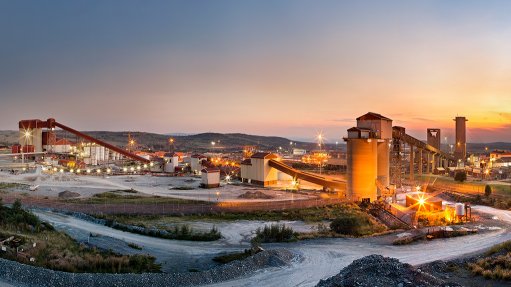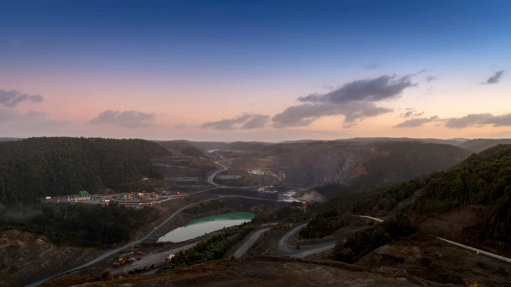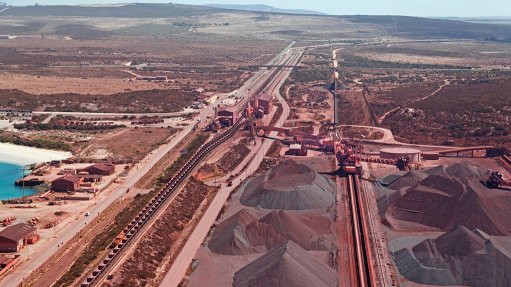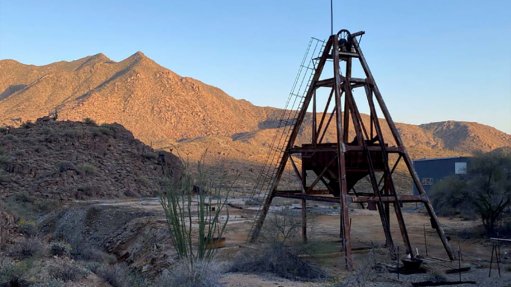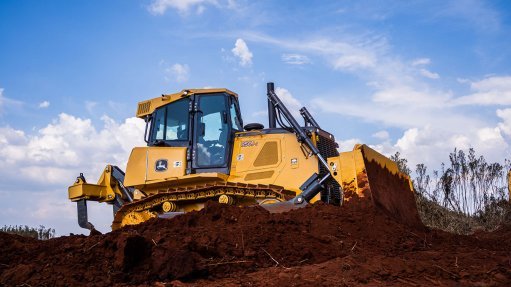Nuclear industry urged to address business case
Decisions on the future energy mix for South Africa need to be forward looking, not backward looking. So affirmed EE Publishers MD Chris Yelland in his keynote address to the National Nuclear Regulator's second Nuclear Regulatory Information Conference on Wednesday.
"Nuclear power in South Africa was constructed in the 1980s and has served South Africa well for the past three decades," he said. It was the cheapest electricity source in the country until a decade ago. But that was no longer the case, he stated. Nuclear power would now be more expensive than new coal power, or gas generation or renewable energy sources.
"Nuclear power and renewable energy power technologies are agnostic: they are not in conflict. It is us [people] that bring them into conflict," he pointed out. "I am not against nuclear technology per se." He believed that nuclear power is safe, clean, and suited to South African coastal areas where water is plentiful. He, like others, dreamt of nuclear power that was cheap as well as safe and clean. But, he said, it was still a dream.
"The nuclear sector needs to address the real elephants in the room," he asserted. "In my view the biggest elephant in the room is not the technology, but the business case." There is great uncertainty about the future demand for grid electricity. Megaprojects have high costs and risks. Nuclear power plants also have long construction periods and high up-front costs. There are serious financing issues, both with the public and private sectors in South Africa (local institutions were unwilling to invest in nuclear projects). Nuclear power plants had to be run constantly at a high output level for maximum efficiency.
The risk associated with nuclear power was not low. While the risk of technological failure was low, when such failures did happen, the consequences were very serious. The crisis at the Fukushima nuclear power station in Japan had very severe financial consequences. Consequently, the private sector was reluctant to insure nuclear power plants, leaving that to governments.
Moreover, a nuclear new build programme would require a 100-year commitment to an energy technology and a specific vendor -- in an uncertain world. He observed that nuclear energy was more prone to political interference because of geopolitical factors. At home, the image of the nuclear industry had been severely damaged by its association, in the public mind, with former President Jacob Zuma and the allegations of large-scale corruption involving him, key members of his administration, and high ranking officials.
Coal, however, had serious health and environmental hazards, both from burning it in power stations and from mining it. Coal power was responsible for about 2 500 deaths a year in South Africa. Yelland pondered what the outcry would be if those deaths were caused by nuclear power. The country had to take its environmental responsibilities seriously.
"Most Eskom coal plants are not environmentally compliant," he observed. And the utility has admitted that it does not have the money to make them compliant. Moreover, some of its coal plants were near the end of their lives.
There should be no more coal power in South Africa, he affirmed. But there was much uncertainty about what the country's future energy mix should be. "We have too much baseload power in the mix. We have too much coal in the mix. We have not enough flexibility in the mix." There was currently no gas-powered generation in the mix, and there was too much diesel-powered generation, which should be converted to gas.
Should there be nuclear power in the country's future energy mix? That question would be answered by the country's next Integrated Resource Plan (IRP). The drawing up of the IRP was a highly professional process, he highlighted. "The IRP is due in August 2018. Ultimately, it is the IRP that will determine our energy mix."
Comments
Press Office
Announcements
What's On
Subscribe to improve your user experience...
Option 1 (equivalent of R125 a month):
Receive a weekly copy of Creamer Media's Engineering News & Mining Weekly magazine
(print copy for those in South Africa and e-magazine for those outside of South Africa)
Receive daily email newsletters
Access to full search results
Access archive of magazine back copies
Access to Projects in Progress
Access to ONE Research Report of your choice in PDF format
Option 2 (equivalent of R375 a month):
All benefits from Option 1
PLUS
Access to Creamer Media's Research Channel Africa for ALL Research Reports, in PDF format, on various industrial and mining sectors
including Electricity; Water; Energy Transition; Hydrogen; Roads, Rail and Ports; Coal; Gold; Platinum; Battery Metals; etc.
Already a subscriber?
Forgotten your password?
Receive weekly copy of Creamer Media's Engineering News & Mining Weekly magazine (print copy for those in South Africa and e-magazine for those outside of South Africa)
➕
Recieve daily email newsletters
➕
Access to full search results
➕
Access archive of magazine back copies
➕
Access to Projects in Progress
➕
Access to ONE Research Report of your choice in PDF format
RESEARCH CHANNEL AFRICA
R4500 (equivalent of R375 a month)
SUBSCRIBEAll benefits from Option 1
➕
Access to Creamer Media's Research Channel Africa for ALL Research Reports on various industrial and mining sectors, in PDF format, including on:
Electricity
➕
Water
➕
Energy Transition
➕
Hydrogen
➕
Roads, Rail and Ports
➕
Coal
➕
Gold
➕
Platinum
➕
Battery Metals
➕
etc.
Receive all benefits from Option 1 or Option 2 delivered to numerous people at your company
➕
Multiple User names and Passwords for simultaneous log-ins
➕
Intranet integration access to all in your organisation






